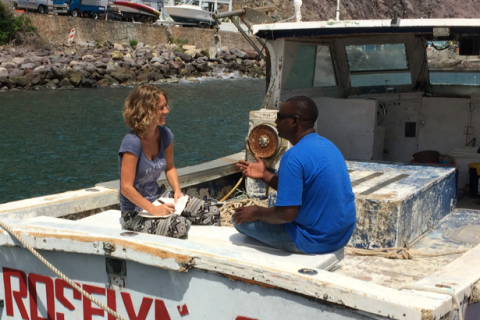Towards more effective Participatory Action Research
PhD research

Madelon Eelderink is a PhD candidate in the Environmental Governance Group of the Copernicus Institite of Sustainable Development at Utrecht University. She studies the process of Participatory Action Research (PAR) in social ecological systems and the dynamics between different stakeholders when co-creating solutions for complex problems. This is to understand how to improve the process so that its impact is more effective and longer lasting.
Participatory Action Research (PAR) is an approach that links science and practice. It allows a community of organizational and non-organizational stakeholders to investigate their own situation, reflect on the results and co-create the best fitting interventions to tackle complex problems and achieve sustainable impact.
"Participatory Action Research takes place in many different forms, depending on the local situation and the nature of the issue researched," says Madelon. "I hope to gain insights in the best possible ways of applying Participatory Action Research and how it can be combined with other approaches so that its impact is more effective and longer lasting".
I hope to gain insights in the best possible ways of applying Participatory Action Research and how it can be combined with other approaches so that its impact is more effective and longer lasting
Through academically investigating the PAR processes she conducts with her organisation 7Senses, she hopes to help other practitioners gain further insight in how PAR brings the best results in a social ecological systems and what principles and dynamics need to be addressed.
She is currently writing two journal articles with her PAR work performed on Saba (Caribbean) and in Zeist, the Netherlands as case studies.
Publications
Eelderink, M., Vervoort, J., Snel, D., & de Castro, F. (2017). Harnessing the plurality of actor frames in social-ecological systems: ecological sanitation in Bolivia. Development in Practice, 27(3), 275–287. https://doi.org/10.1080/09614524.2017.1291583

